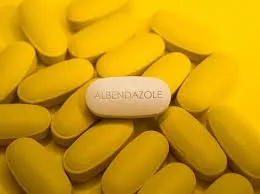- Afrikaans
- Albanian
- Amharic
- Arabic
- Armenian
- Azerbaijani
- Basque
- Belarusian
- Bengali
- Bosnian
- Bulgarian
- Catalan
- Cebuano
- Corsican
- Croatian
- Czech
- Danish
- Dutch
- English
- Esperanto
- Estonian
- Finnish
- French
- Frisian
- Galician
- Georgian
- German
- Greek
- Gujarati
- Haitian Creole
- hausa
- hawaiian
- Hebrew
- Hindi
- Miao
- Hungarian
- Icelandic
- igbo
- Indonesian
- irish
- Italian
- Japanese
- Javanese
- Kannada
- kazakh
- Khmer
- Rwandese
- Korean
- Kurdish
- Kyrgyz
- Lao
- Latin
- Latvian
- Lithuanian
- Luxembourgish
- Macedonian
- Malgashi
- Malay
- Malayalam
- Maltese
- Maori
- Marathi
- Mongolian
- Myanmar
- Nepali
- Norwegian
- Norwegian
- Occitan
- Pashto
- Persian
- Polish
- Portuguese
- Punjabi
- Romanian
- Russian
- Samoan
- Scottish Gaelic
- Serbian
- Sesotho
- Shona
- Sindhi
- Sinhala
- Slovak
- Slovenian
- Somali
- Spanish
- Sundanese
- Swahili
- Swedish
- Tagalog
- Tajik
- Tamil
- Tatar
- Telugu
- Thai
- Turkish
- Turkmen
- Ukrainian
- Urdu
- Uighur
- Uzbek
- Vietnamese
- Welsh
- Bantu
- Yiddish
- Yoruba
- Zulu
Nov . 10, 2024 22:13 Back to list
Albendazole 10 ml Oral Suspension for Effective Treatment of Parasitic Infections
Albendazole 10 ml Suspension An Overview
Albendazole is a broad-spectrum anthelmintic drug that is widely used for the treatment of various parasitic infections. It is particularly effective against gastrointestinal worms, including roundworms, hookworms, and tapeworms. This article focuses on the 10 ml suspension formulation of albendazole, its indications, mechanism of action, administration, and potential side effects.
What is Albendazole?
Albendazole belongs to a class of drugs known as benzimidazoles. It works by inhibiting the growth and reproduction of parasitic worms in the body. The 10 ml suspension form is especially useful for specific patient populations, including children or those who have difficulties swallowing tablets. This easy-to-administer liquid formulation ensures that the medication can be taken comfortably, increasing adherence to treatment protocols.
Indications
The primary indications for albendazole suspension include
1. Nematode Infections These include ascariasis (roundworm infection), enterobiasis (pinworm infection), and hookworm infection. 2. Cestode Infections It is effective against infections caused by tapeworms, aiding in the treatment of cysticercosis, a serious condition caused by the larval stage of the pork tapeworm.
Mechanism of Action
albendazole 10 ml suspension

Albendazole’s pharmacological action is based on its ability to inhibit the polymerization of tubulin into microtubules. Microtubules are essential for the cell's structural integrity and function. By disrupting this process, albendazole paralyzes and eventually kills the parasites, allowing for their elimination from the gastrointestinal tract through natural processes. This mechanism also explains why albendazole can be effective against a variety of helminths.
Administration
Administering albendazole suspension is straightforward. The dosage varies based on the age and weight of the patient, as well as the specific type of infection being treated. Typically, the medication is taken once or twice daily, with or without food. However, it is crucial to follow the healthcare provider's recommendations regarding dosage to ensure maximum efficacy and minimize potential side effects.
Side Effects
While albendazole is generally well-tolerated, some patients may experience side effects. Common side effects can include
- Nausea - Vomiting - Abdominal pain - Diarrhea
In more rare cases, serious side effects can occur, such as liver enzyme elevations or allergic reactions. Regular monitoring may be recommended for patients receiving long-term treatment, especially if they have pre-existing liver conditions.
Conclusion
Albendazole 10 ml suspension is a vital medication in the fight against various parasitic infections. Its broad-spectrum activity, ease of administration, and effectiveness make it a preferred choice for treating helminthic infections, especially in children and those who prefer or require liquid medications. As always, it is essential for patients and caregivers to consult healthcare professionals for proper diagnosis, treatment planning, and to understand the importance of completing the prescribed course of albendazole to ensure successful eradication of the infection. With increased awareness and appropriate use, albendazole can significantly improve the quality of life for those afflicted with parasitic diseases.
-
Guide to Oxytetracycline Injection
NewsMar.27,2025
-
Guide to Colistin Sulphate
NewsMar.27,2025
-
Gentamicin Sulfate: Uses, Price, And Key Information
NewsMar.27,2025
-
Enrofloxacin Injection: Uses, Price, And Supplier Information
NewsMar.27,2025
-
Dexamethasone Sodium Phosphate Injection: Uses, Price, And Key Information
NewsMar.27,2025
-
Albendazole Tablet: Uses, Dosage, Cost, And Key Information
NewsMar.27,2025













